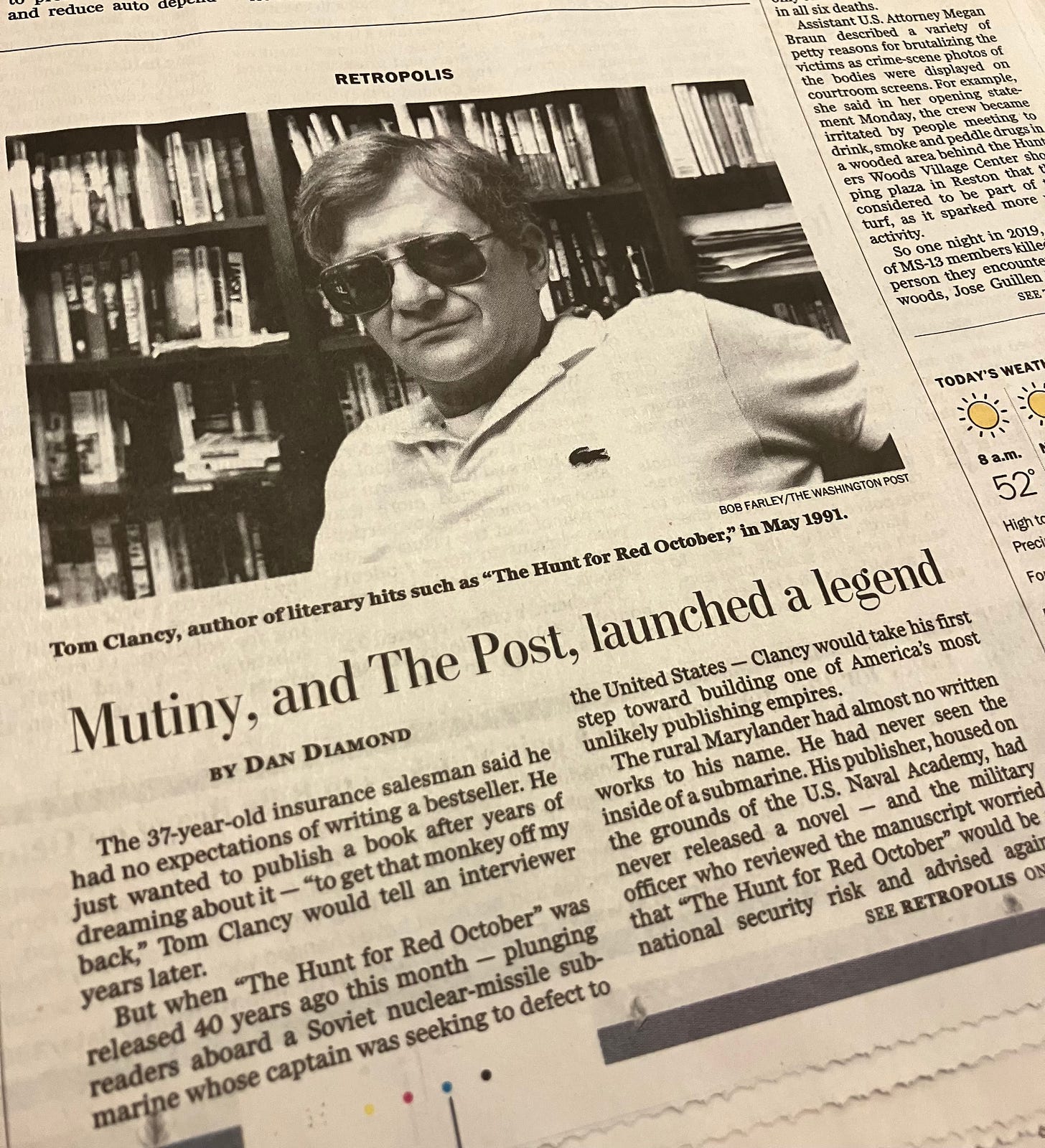Forty years ago today, on page 8 of The Washington Post’s Book World section, a first-time author received a rave review.
“A tremendously enjoyable and gripping novel of naval derring-do,” assistant editor Reid Beddow wrote about “The Hunt for Red October.”
Tom Clancy emerged — basically out of nowhere — as a major talent.
The 37-year-old insurance salesman had been dabbling with a few book ideas, but was a virtual unknown before October 1984. One of his two major published works: a letter to the editor of a naval magazine.
Then came “The Hunt for Red October” — a novel that become a D.C. sensation, with some help from The Post’s influential review. The book quickly exploded into a national blockbuster after President Ronald Reagan endorsed it in early 1985.
More Clancy books would soon dominate bestseller lists. “The Hunt for Red October” would eventually spark a film franchise starring Alec Baldwin, Harrison Ford, Ben Affleck and Chris Pine. There would be Clancy-branded video games, military history books, even some bad TV movies.
He became kind of synonymous with an era in America — the nation’s triumph in the Cold War, followed by the geopolitical uncertainty of what came next.
At The Post, I took a look back at Clancy’s incredible arc as an author. The piece digs into where he got the idea for “The Hunt for Red October,” how his publishing breakthrough happened, and some of the triumphs and complications that followed. I also talked to several people who knew him, which helped inform the piece.
Tom Clancy’s legend began 40 years ago — with a nudge from The Post
This one was personal for me. I don’t remember the first time I read “The Hunt for Red October,” but I vividly recall when my parents brought me along to see the film adaptation. (We were on vacation in Vermont, in some small theater.) Some of the movie went over my head, but much of it thrilled and ensnared me — just as it does when I rewatch it today.
Later, my parents would drop me at our local library on weekends, where I slowly plowed through Clancy’s books at my pre-teen pace. I even tried typing out some Clancy-esque military saga on our home computer in the basement, though it’s totally lost to time. All I remember is something about fighter jets.
His books were far from perfect — they got steadily worse, in my opinion, as he got ever-more famous. I met him at least once, when he spoke at my school, and my enduring memory isn’t anything he said to me and my classmates, but how much of a jerk he was to my teachers.
But writing the retrospective was also a reminder of his gifts and influence, and how his career truly was an American success story. I found much of it inspirational; Clancy was a guy entering middle age, nursing a dream of becoming a writer, and before long he was not just a writer, but one of THE writers, captivating millions of people with his words and characters.
Having done weeks of research, I could ramble on — maybe that would be the best Clancy homage — but since I’m not a best-selling author with an unlimited word count, I’ll just urge you to check out my Post piece instead.




